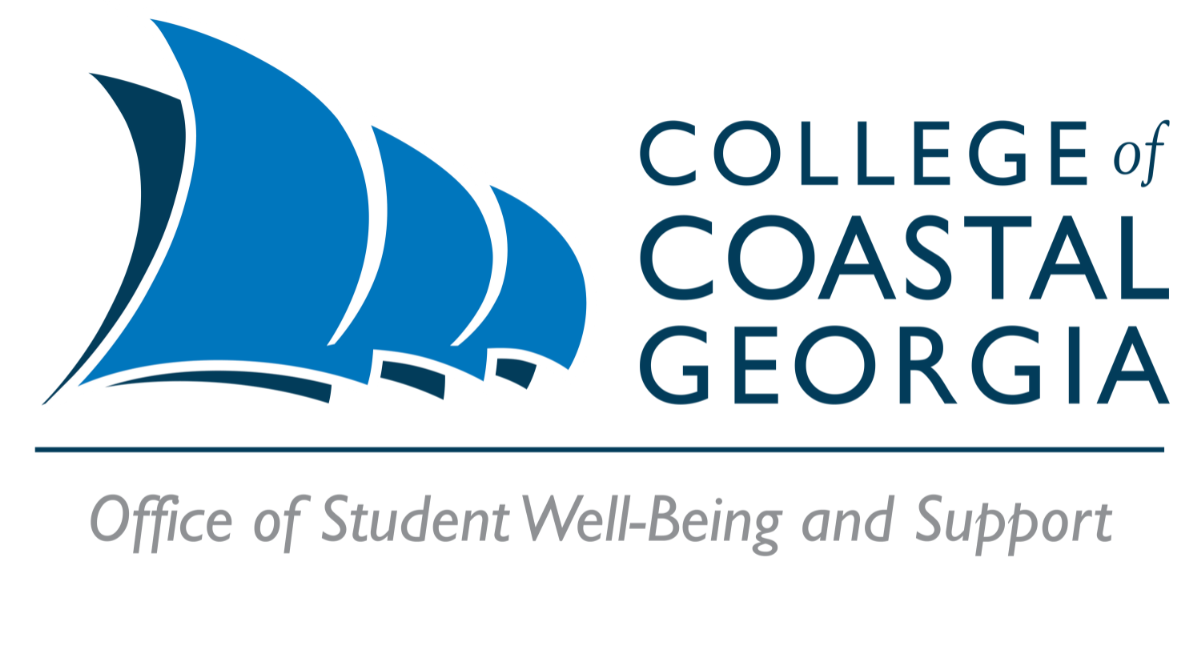- Home
- Campus Life
- Student Success Resources

Student Success Resources
Welcome aboard, Mariners! Navigating through college life can sometimes feel like sailing uncharted waters, but fear not! We’re thrilled to introduce you to your ultimate compass for success at Coastal Georgia. Whether you’re just setting sail, or you’ve been on this voyage for a while, our one-stop-shop for student resources and support is here to ensure smooth sailing throughout your journey. From academic assistance to wellness services, and career guidance to extracurricular opportunities, we’ve got everything you need to make the most of your time as a Mariner.
Office of Student Well-Being and Support

-Student Health Center
-Counseling Services
-Accessibility Services
Student Well-Being and Support provides quality care in time of sickness and injury, and promotes wellness through health education and activities to help students maintain healthy lifestyles.
Academic Resources and Support
Your COMPASS Career and Academic Advisor will empower you to explore and develop sound academic plans that align with your career goals, academic experiences, personal values, and skills.
The Academic Tutoring and Instruction Center (ATTIC) provides academic resources to all College of Coastal Georgia students. Choose from in-person, online, or just stop by!
The Writing Center provides one-on-one, in-depth writing coaching for students. Coaches work to help students develop skills for writing at the collegiate level. Online sessions are offered Monday through Friday.
Service-Learning and Undergraduate Research
An education at the College of Coastal Georgia produces more than a degree. It is a transformative experience that prepares you to succeed in a fulfilling career or graduate program, contribute to society in meaningful ways, and adapt to a changing world as a lifelong learner.
The Library at College of Coastal Georgia is a vibrant learning community where students gather to collaborate using the latest technology in an inviting space. The Library supports the curriculum and research of students and faculty members.
Student Support and Other Resources
Coastal Georgia strives to create and nurture a strong learning and working environment that complies with the goals of the University System of Georgia, and can be respected by all members of the college community. Be sure to familiarize yourself with campus policies and procedures.
Coastal Georgia’s Student Emergency Fund prioritizes requests from students who do not qualify for the Coastal CARES Student Emergency Grant Fund. The College is provided limited funds which are used to assist students who may experience hardships during their time at the College.
The University System of Georgia will not tolerate sexual misconduct, which is prohibited, and which includes but is not limited to domestic violence, dating violence, sexual assault, sexual exploitation, sexual harassment, and stalking.
Counseling Services, Accessibility Services, and Student Health Center
The Office of Student Well-Being and Support is comprised of a Student Health Center, Counseling Services, and Accessibility Services. We provide quality care in times of sickness and injury, and promote wellness through health education and activities to help students maintain healthy lifestyles.
The Behavioral Intervention Team aims to provide a proactive and supportive multi-disciplinary team approach to prevention, assessment, intervention, and management of situations that may impact the safety and wellbeing of individuals or the College community.
There are a variety of unforeseen events or circumstances that may constitute emergencies and result in a student’s absence from class. This policy allows instructors to be informed and work with students to establish and plan a timeline for completing any missed coursework.
The College of Coastal Georgia is one of the most affordable institutions on the southeast coast. We encourage 15 hours per semester to graduate in four years. Tuition costs will vary based on the number of credit hours in which you enroll. Twelve or more credit hours is considered full-time enrollment.
The Mariner Access Card (MAC) is the official College of Coastal Georgia identification card, and the key to the campus. With it, you can access services, attend events, and make purchases on campus without the hassle of carrying cash.
At Coastal Georgia, we celebrate our diverse student population. Our students represent many races, ethnicities, nationalities, and cultures – all of which enhance our community.
Coastal Georgia’s campus pantry, “The DECK,” is a fully-functioning food and hygiene pantry on campus. It is operated by the Student Government Association (SGA). Its purpose is to support peers with the necessities they need, and to create community.
University System of Georgia (USG) institutions periodically conduct, sponsor, or host programs designed to serve minors who are not enrolled as students, including but not limited to camps, clinics, after-school programs, and activities.






